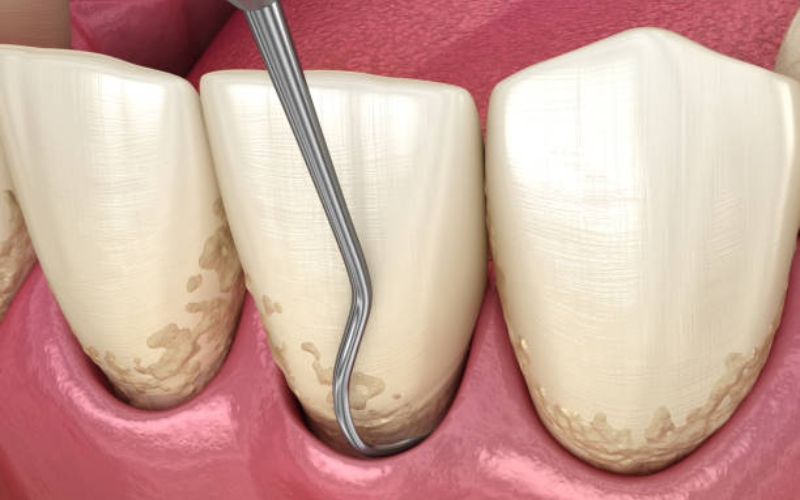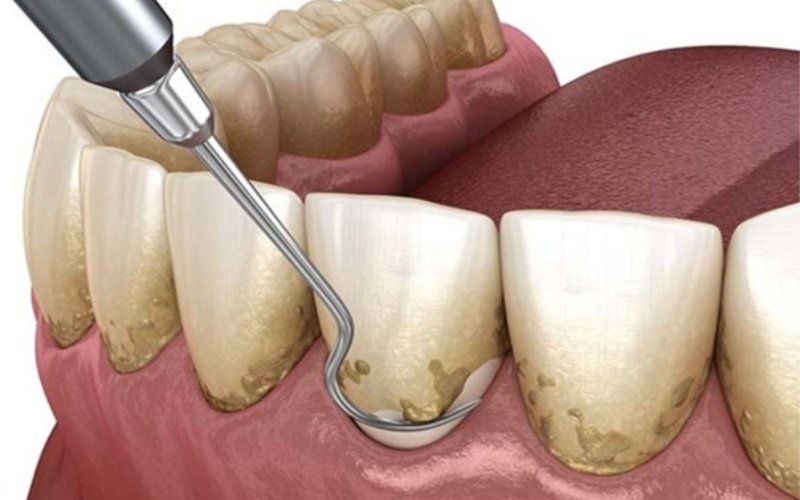How To Prepare For Your Scaling & Root Planing Appointment?

Scaling and root planing (SRP) is a deep cleaning procedure designed to treat gum disease by removing plaque, tartar, and bacteria from below the gumline. This procedure is essential for preventing further gum damage, tooth loss, and other oral health complications.
While scaling and root planing are highly effective treatments, preparing for your appointment can make the experience more comfortable and ensure the best possible results.
If you’re scheduled for scaling and root planing, this guide will provide you with everything you need to know to get ready for the procedure. From pre-treatment tips to what to expect during and after your appointment, we’ve got you covered.
Scaling & Root Planing
Before jumping into preparation tips, it’s helpful to understand what scaling and root planing involve. The treatment is typically performed under local anesthesia to minimize discomfort.
- Scaling: This step involves removing plaque and tartar buildup from the surface of your teeth and below the gumline.
- Root Planing: The dentist or hygienist smooths out the roots of the teeth, helping the gums reattach and heal properly.
The procedure is usually performed over one or two visits, depending on the severity of the gum disease.
How To Prepare for Your Scaling & Root Planing Appointment?
Proper preparation is key to ensuring a successful and stress-free scaling and root planing appointment. Here are some helpful tips to follow:
1. Schedule a Consultation & X-Rays
Before undergoing scaling and root planing, dentist will likely want to examine your mouth and assess the extent of your gum disease. This may include:
- Consultation: The dentist will evaluate your overall oral health and check for signs of gum disease, such as bleeding gums or deep pockets around the teeth.
- X-Rays: In some cases, dental X-rays will be taken to assess the health of your bones and to determine the extent of plaque buildup.
Scheduling this initial visit allows dentist to tailor the procedure to your needs and help you understand the treatment plan.
2. Address Any Medical Conditions
Certain medical conditions can affect your scaling and root planing procedure, so it’s important to share your medical history with our dentist. Conditions like diabetes, heart disease, or bleeding disorders may require special considerations.
The dentist may also want to review any medications you are currently taking, as some can increase the risk of bleeding or affect healing.
- Inform the dentist about any existing health conditions.
- Provide a list of medications you are taking, especially blood thinners.
This ensures the dentist can take the necessary precautions for a safe and effective procedure.
3. Take Time To Rest The Day Before
The day before your appointment, try to get plenty of rest. Being well-rested will help you feel more relaxed and prepared for the procedure. If you are feeling nervous, try practicing relaxation techniques such as deep breathing to help ease anxiety.
4. Avoid Eating Before The Procedure
Although scaling and root planing are typically performed with a local anesthetic to numb the area, it’s best to avoid eating a heavy meal before your appointment. In some cases, dentists may recommend a light meal a couple of hours before the procedure.
If the procedure requires sedation, you may need to fast for a certain period of time.
- Avoid eating at least 1-2 hours before your appointment.
- If sedation is used, follow the dentist’s instructions on fasting.
5. Plan for Aftercare and Recovery
Since scaling and root planing can cause some discomfort and sensitivity afterward, it’s important to plan for your post-treatment recovery. Consider these post-treatment tips:
- Arrange for a ride home: If sedation is used, it’s a good idea to arrange for someone to drive you home afterward.
- Have soft foods available: After the procedure, you may feel soreness or sensitivity, so it’s best to stick to soft foods for the first few days.
- Pain relief: Over-the-counter pain relievers like ibuprofen can help manage discomfort, but be sure to follow our dentist’s recommendations.
6. Stock Up on Oral Care Essentials
Proper oral care is essential to help your gums heal after scaling and root planing. You may be advised to use a special mouthwash or antimicrobial rinse to keep the treated areas clean and free of infection. Stock up on the following items:
- Antibacterial mouthwash: To reduce the risk of infection.
- Soft toothbrush: To avoid irritating sensitive gums.
- Flossing aids: Special floss or tools designed for gum disease management may be recommended.
What To Expect During Your Appointment for Scaling & Root Planing?
The procedure itself is fairly straightforward, but it’s helpful to know what to expect so you can remain calm and confident. Here’s what typically happens during your SRP appointment:
- Numbing: Local anesthesia will be applied to numb the treatment area.
- Scaling: The dentist or hygienist will remove plaque and tartar buildup from the teeth and below the gumline.
- Root Planing: The roots of your teeth will be smoothed to promote gum healing and reattachment.
- Time: Depending on the severity of the gum disease, the procedure may take one or two visits to complete.
Most patients report feeling minimal discomfort during the procedure, although you may feel some pressure while the dentist works.
Post-Treatment Care: Ensuring Optimal Healing
Once your scaling and root planing procedure is complete, our dentist will provide specific aftercare instructions to ensure the best results. Here are some general tips:
- Avoid Smoking: Smoking can impair the healing process and increase the risk of complications.
- Limit Physical Activity: Avoid strenuous physical activities for the first 24 hours after your procedure.
- Follow-up: Schedule follow-up appointments to monitor your progress and ensure that your gums are healing properly.
Preparing for your scaling and root planing appointment is crucial for a smooth, successful procedure and a quicker recovery. By following the tips provided in this guide, you can ensure that you’re fully ready for the treatment.
From addressing any health concerns and discussing medications with our dentist to preparing your home for recovery, taking the time to plan ahead will help you achieve the best results.
With proper care and attention, root planing and scaling can significantly improve your gum health, giving you a cleaner, healthier smile for years.


